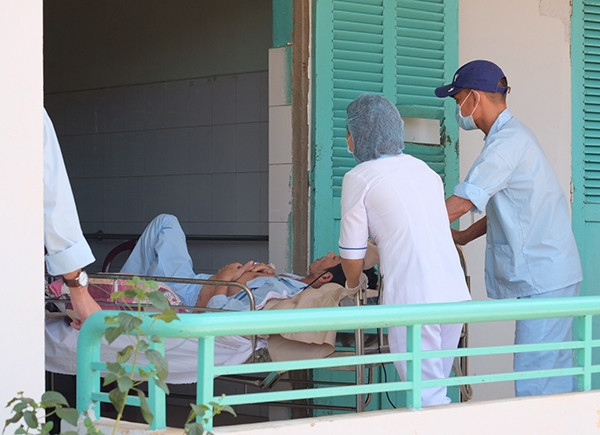 Society
Society
.jpg)
.jpg) |
| Dr. Nguyễn Thị Minh Tâm, head of VAAC's Prevention Department, introduces the toolkit in Bangkok. -- VNS Photo Khánh Dương |
Khánh Dương
BANGKOK — A training toolkit for chemsex (sexualised drug use) community outreach workers in Việt Nam has been introduced on Thursday during the sixth Asia-Pacific Chemsex Symposium in Bangkok.
The toolkit has been developed by the Việt Nam Administration of HIV/AIDS Control (VAAC) in collaboration with HCM City University of Medicine and Pharmacy, with the assistance of the Joint United Nations Programme on HIV/AIDS (UNAIDS) and the United Nations Office on Drugs and Crime (UNODC).
The toolkit is designed to support harm reduction services for gay, bisexual and other men who have sex with men (MSM) and transgender women involved in chemsex.
In Việt Nam, community outreach workers that offer HIV services to drug users, MSM, and transgender women will benefit from the toolkit.
The workers will be able to gain the knowledge and skills to advise and support customers if they are willing to share about their chemsex behaviours and the health risks that go along with them, as well as provide HIV prevention interventions to people engaging in sexualised drug use.
Chemsex, which involves using drugs to enhance sexual experience, is emerging as a significant concern for the increased risk of HIV and other sexually transmissible infections.
According to VAAC, MSM is one of the populations most at risk of HIV infections in Việt Nam, along with transgender women, people who inject drugs and female sex workers.
Talking about the challenges of reaching MSM group engaging in sexualised drug use in Việt Nam, Dr. Nguyễn Thị Minh Tâm, head of Prevention Department, VAAC, said the lack of acceptance in society prevents this group from coming out and from using harm reduction services that are intended for them.
There are many community-based organisations in Việt Nam which provide harm reduction services to MSM for prevention of HIV infection. Particularly when it comes to media and social networks, there are different outreach methods. In order to reach MSM communities, they use independent dating apps and internet platforms to help spread knowledge about HIV prevention and control. Community outreach workers also help refer MSM to HIV testing, antiretroviral treatment and PrEP services, she said.
“Only community-based organisations can best reach the MSM community," she told Việt Nam News.
The HCM City University of Medicine and Pharmacy, one of the toolkit's developers, has conferred with MSM groups and community-based organisations in order to build both theoretical and practical skills, in accordance with the guidelines provided by the Ministry of Health which is in line with international guidance.
“Community outreach workers themselves are those who test the toolkit and give us feedback,” Tâm said.
Since June this year, the toolkit has been piloted by local community outreach workers who provide harm reduction interventions to about 174 MSM clients. It is anticipated that 200 to 300 MSM clients will receive assistance by November.
The VAAC plans to officially launch the toolkit at the beginning of 2025 with the expectation of providing harm reduction interventions to localities reporting a large number of MSM, especially southern localities.
“Chemsex harm reduction interventions have been implemented in Việt Nam recently but in a small scale. This will be the first time a chemsex intervention toolkit will be applied on a national scale,” Tâm said.
Quinten Lataire, acting country director for UNAIDS in Việt Nam, said the role of community-based organisations can not be underestimated. The toolkit addresses those issues that have been identified by the communities as essential in the context of sexualised drug use.
“The toolkit was developed hand in hand with the communities and addresses those issues that they see as most needed. HIV and STI prevention is the primary focus of the toolkit. On the request of communities, this was also expanded to guidance on mental health problems in the context of drug use.”
“The toolkit gives the community outreach workers the tools and capacity to support their peers. That peer support is absolutely crucial because the community outreach workers are the first entry point to their own communities and function as the extended arms of public health system,” he told Việt Nam News.
He also commended the Ministry of Health and VAAC for recognising this important role of the communities and working hand in hand with communities to end AIDS as a public health threat in Việt Nam. — VNS
.jpg)



